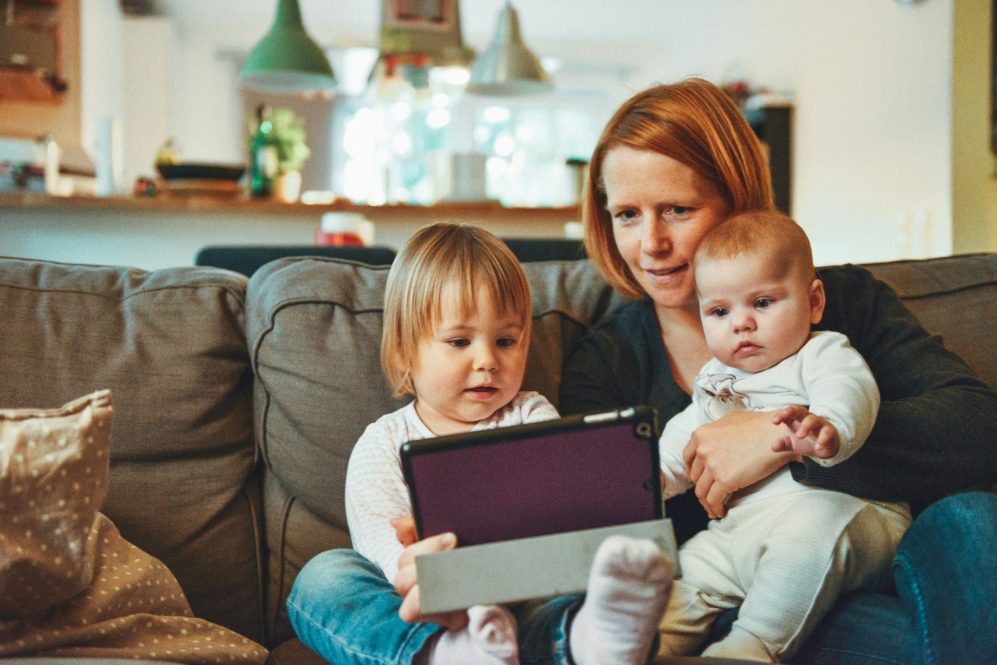The first few years of life are a critical time in children’s development, laying the groundwork for the early skills they will need for the rest of their lives. For families, parenting young children while working and taking care of other responsibilities is challenging. Families with infants and toddlers often need support, which can be difficult to find and access.
To help provide this support, UConn Human Development and Family Sciences (HDFS) associate professors Rachel Chazan Cohen and Caitlin Lombardi are working with the Connecticut Office of Early Childhood (OEC) to launch a new program, CT Early Years, for families with infants and toddlers.
“All families need support during these early years,” says Cohen. “When children are young, parenting is joyful and wonderful, but it’s also hard. If we can support parents and families to understand child development and support child development starting right at the start, it just is such a boon to children.”

The $10 million program will focus on childcare centers and family childcare homes in New Haven and Hartford. Participating programs will be paired with professional consultants experienced in working with families. Individual families will be able to choose whether they participate.
Family consultants will work individually with parents twice a month to determine their unique needs and connect them to appropriate resources.
“There’s a range of supports that families might want to support parenting their child,” Lombardi says. “Some families may need support to advance their own economic or educational plans; others may need support to access services in the community; and some may want to get to know other families with young children, to have peer-to-peer support for their shared experience.”
In a 2022 survey from the OEC, 47% of respondents with children under four years old indicated that they used an external childcare center; another 15% opted for a licensed family childcare home. These services are especially crucial for working families and single parents.
The researchers hope that embedding professional family consultants in these care settings will connect such families to more social, emotional, and financial supports than they would have access to otherwise.
Family consultants will be selected from among a statewide pool of qualified professionals who are already doing similar work. Professionals working in Connecticut’s home visiting program, for example, are paired with expectant parents to provide in-home support, with visits that can begin during pregnancy and continue throughout the first few years of a child’s life.

“We are bringing together resources that already exist in the state,” Cohen explains. “We are marrying the best of home visiting with the best of childcare so that families who depend on childcare also have access to the resources and supports they need through the Family Consultant.”
Over the course of the study, the researchers will compare family outcomes from childcare locations who received a family consultant with outcomes from those which did not, evaluating factors like parental stress, children’s literacy, and access to resources. They hope to see families who receive the intervention accessing more services for mental and physical health, education, and employment.
They will also be able to observe parent/child interactions to assess parental confidence and behaviors, seeing how proactively parents support their children’s development.
“If we observe that families’ homes are more supportive of learning — they have more developmentally appropriate toys, they have more books, they’re reading to their children more, things like that — that will be a key outcome for us,” Cohen says.
While the study’s focus will be on parents, the researchers also expect positive effects for children’s social and emotional well-being and readiness for school. Cohen points out that other interventions of this kind have been shown to significantly boost children’s language skills.
“That’s where these interventions tend to have their biggest effects, which is really important,” she says. “Because if you have an impact on children’s socialization and their ability to interact with peers and their parents — if you have an impact on the way they communicate — that sets them up for success down the road.”



